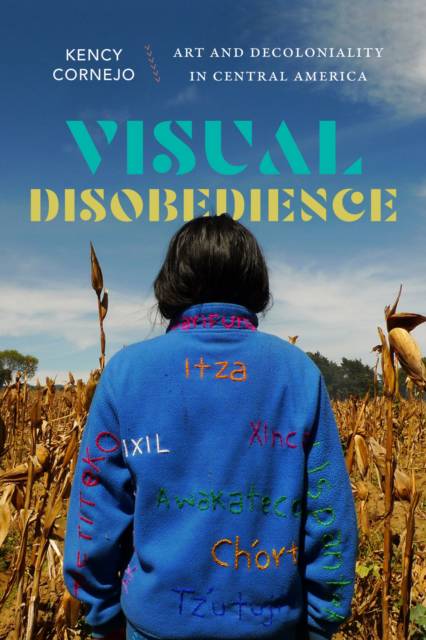
Bedankt voor het vertrouwen het afgelopen jaar! Om jou te bedanken bieden we GRATIS verzending (in België) aan op alles gedurende de hele maand januari.
- Afhalen na 1 uur in een winkel met voorraad
- In januari gratis thuislevering in België
- Ruim aanbod met 7 miljoen producten
Bedankt voor het vertrouwen het afgelopen jaar! Om jou te bedanken bieden we GRATIS verzending (in België) aan op alles gedurende de hele maand januari.
- Afhalen na 1 uur in een winkel met voorraad
- In januari gratis thuislevering in België
- Ruim aanbod met 7 miljoen producten
Zoeken
Omschrijving
In Visual Disobedience, Kency Cornejo traces the emergence of new artistic strategies for Indigenous, feminist, and anticarceral resistance in the wake of torture, disappearance, killings, and US-funded civil wars in Central America. Cornejo reveals a direct line from US intervention to current forms of racial, economic, and gender injustice in the isthmus, connecting this to the criminalization and incarceration of migrants at the US-Mexico border today. Drawing on interviews with Central American artists and curators, she theorizes a form of "visual disobedience" in which art operates in opposition to nation-states, colonialism, and visual coloniality. She counters historical erasure by examining over eighty artworks and highlighting forty artists across the region. Cornejo also rejects the normalized image of the suffering Central American individual by repositioning artists as creative agents of their own realities. With this comprehensive exploration of contemporary Central American art, Cornejo highlights the role of visual disobedience as a strategy of decolonial aesthetics to expose and combat coloniality, heteropatriarchy, white supremacy, empire, and other systems of oppression.
Specificaties
Betrokkenen
- Auteur(s):
- Uitgeverij:
Inhoud
- Aantal bladzijden:
- 304
- Taal:
- Engels
- Reeks:
Eigenschappen
- Productcode (EAN):
- 9781478030546
- Verschijningsdatum:
- 18/10/2024
- Uitvoering:
- Paperback
- Formaat:
- Trade paperback (VS)
- Afmetingen:
- 150 mm x 229 mm
- Gewicht:
- 657 g

Alleen bij Standaard Boekhandel
+ 88 punten op je klantenkaart van Standaard Boekhandel
Beoordelingen
We publiceren alleen reviews die voldoen aan de voorwaarden voor reviews. Bekijk onze voorwaarden voor reviews.









